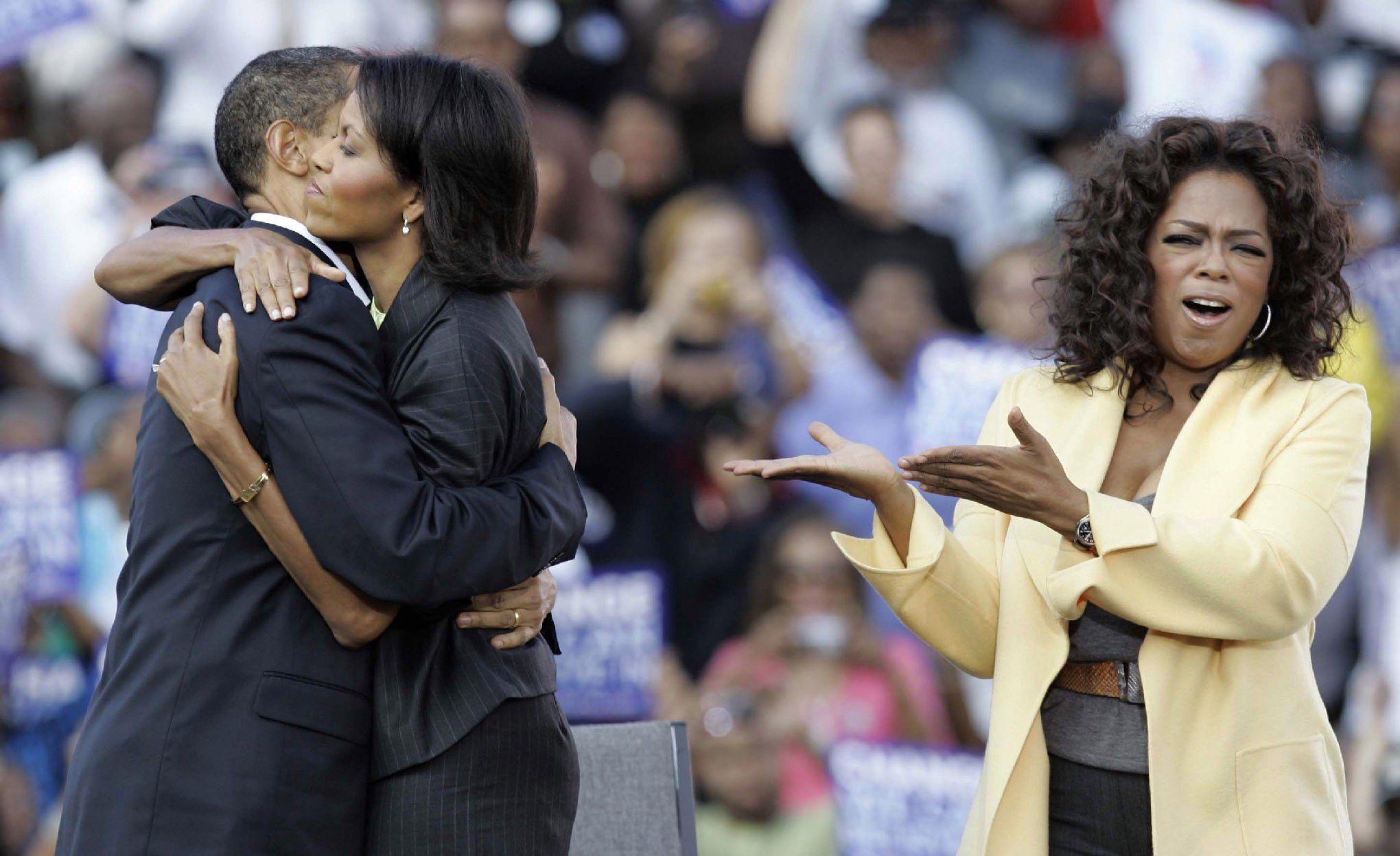I’m gonna start this with a Hot Take: I don’t think President Obama is good enough for Michelle.
No, I know he’s “President.” Yes, I know their relationship is the very definition of #relationshipgoals (if we’re ever allowed to use that phrase again without being total d-bags). We’ve all spent the past nine or so years clicking through slideshows of the two of them, swooning over their marital chemistry. Theirs is a hold hands in the White House garden sort of love; a giggly, inside joke during press conferences sort of love; a sneak-a-slow-dance in the Oval Office sort of love. Even their date nights — traditionally the beleaguered, forced romantic tradition of harried couples — became something iconic after he made taking the first lady to dinner and a Broadway show his first official act as POTUS in 2009. Fine, they’re a great couple, but I’m going to say it again: Barack just ain’t good enough for Michelle.

It is important to note that I just saw Southside With You, director Richard Tanne’s fictionalized re-telling of the first couple’s very first date in 1989, which is something of a revelation, and not just because it’s an odd-couple rom-com for black people. (Though that’s nice.) Because Southside With You is, at its heart, a story about a guy trying to get a girl who’s a little out of his league, it turns out to be a 90-minute ode to Michelle. Michelle looking great in peach. Michelle being smart — maybe smarter than Barack. Michelle being determined and independent. Michelle liking turkey sandwiches, the best deli meat, demonstrating that she has great taste. Michelle tolerating Barack, who at the time was a brilliant but tardy, cigarette-smoking charmer. The movie puts Michelle — an independent, empowered, black woman — up on a pedestal, which seems natural (she’s great) until you remember how rarely movies do this.
Some of my favorite shots in the film are when the camera lingers on Michelle (Tika Sumpter) and puts her in the foreground, standing just slightly in front of Barack (Parker Sawyers). She becomes sharper than everything around her. These shots mimic my favorite photos of the couple — the ones where an audience is watching him watching her (or checking out her legs, which we know he does) while she’s watching something else. “In the case of this movie, she’s the one who is making a more visible change in the course of this story,” says Tanne, who also wrote the movie. (To recap the true story of the first date, as explained in a Washington Post article: Barack was a summer associate at a law firm; he invites Michelle, his adviser at the firm, to “attend a community meeting”; they go see Do the Right Thing and history follows quickly thereafter.) “With Michelle, we actually see her make a realizations about her job,” says Tanne. “We see her make a change in how she relates to this guy who is pursuing her. It felt to me that she was coming into focus a bit more as our emotional entry point.”
That’s in the movie, anyway. The dance moves might be 100 percent accurate, but Tanne did take some liberties with the fictionalized Obamas. (“There’s not a lot about young Michelle Obama out there,” he admits. “The closest you can get is an autobiography written by her brother.”) In Tanne’s mind, her hesitation — which was necessary, even if fictionalized, because every movie needs a conflict — hinged mostly on her reluctance to compromise her work. “She didn’t want some hotshot from Harvard coming in and overshadowing her. There are real considerations a professional woman has to make in a workplace — especially a black professional woman at the time,” Tanne says.
I asked Tanne how, as a white director, he felt qualified to write that inner narrative for her. He was hopeful that people wouldn’t focus on the “why he felt qualified,” but what adding it accomplished. “When your subjects are the Obamas, you can’t just make a simple, or simplistic, screwball-opposites-attract comedy. I hope it delivers as a date-night movie, but when your main characters are the Obamas, it becomes about race in America,” says Tanne. “I just hope many take away how independent and empowered Michelle was.”
Which isn’t wrong, and also explains why a sappy date-night movie that is 90 percent political fan-fiction is also a quiet step forward: when we watch Michelle as a romantic lead, we have to consider a new perspective too — one that considers race and what it means to be a black woman in a professional setting. We have to think about the time when she wasn’t the bad-ass, high-achieving FLOTUS who inspires us daily, and what she had to endure as a black woman on that road to the White House. We have to remember how she was cast as an “angry black woman.” We’re reminded of her own ambitions, and what she probably had to put aside professionally so Barack could become president. It’s a side of the first lady we rarely consider, but should. It’s a moment to appreciate the complexities of being Michelle Obama, and of being a black woman. Put another way — as the real first lady did herself just this week — representation is rare, and it’s important.
But so, honestly, are happy endings. Sorry to spoil your real-life romance, but Movie Barack buys Movie Michelle some chocolate ice cream (her favorite, he asked), and they share their first kiss outside of a Baskin-Robbins. It’s not revolutionary, but it is so nice to have the chance to watch a Before Sunset for black people, wrapped in a Garry Marshall movie with black people, all shined up with the perfectly, nauseatingly sweet varnish of Nick Cassavetes for a black audience. Again, seeing yourself — or the most aspirational version of yourself — matters. Though first couple stans, feel free to enjoy, too.